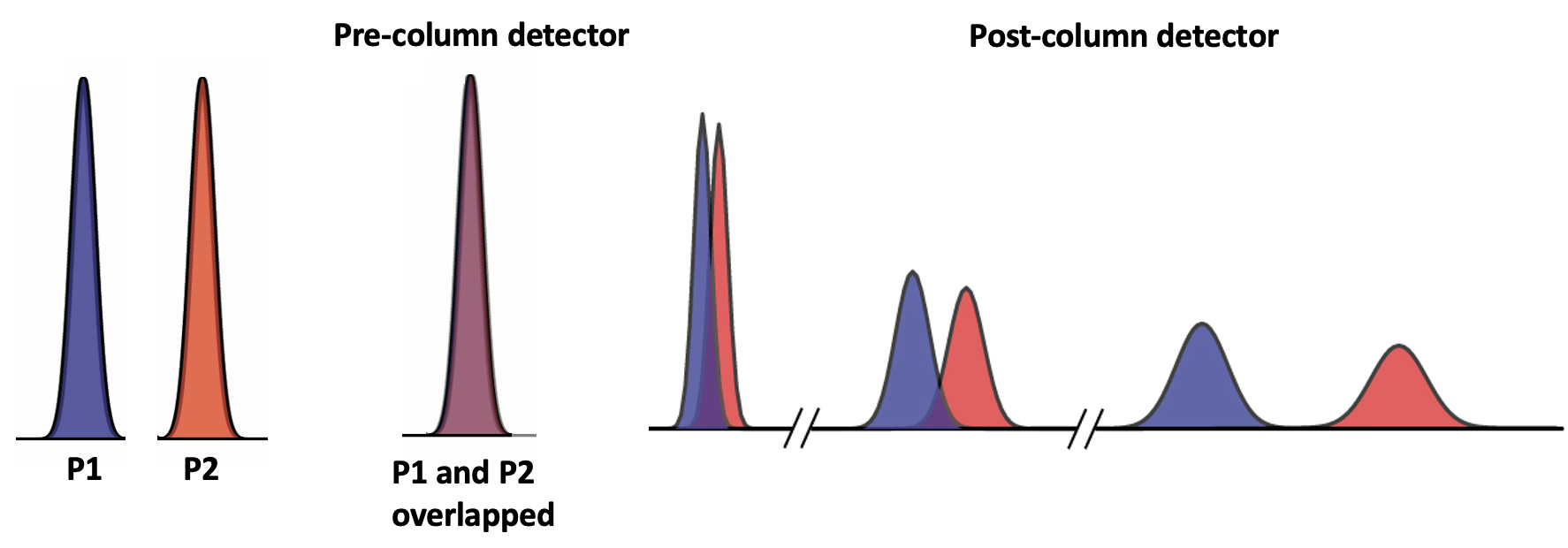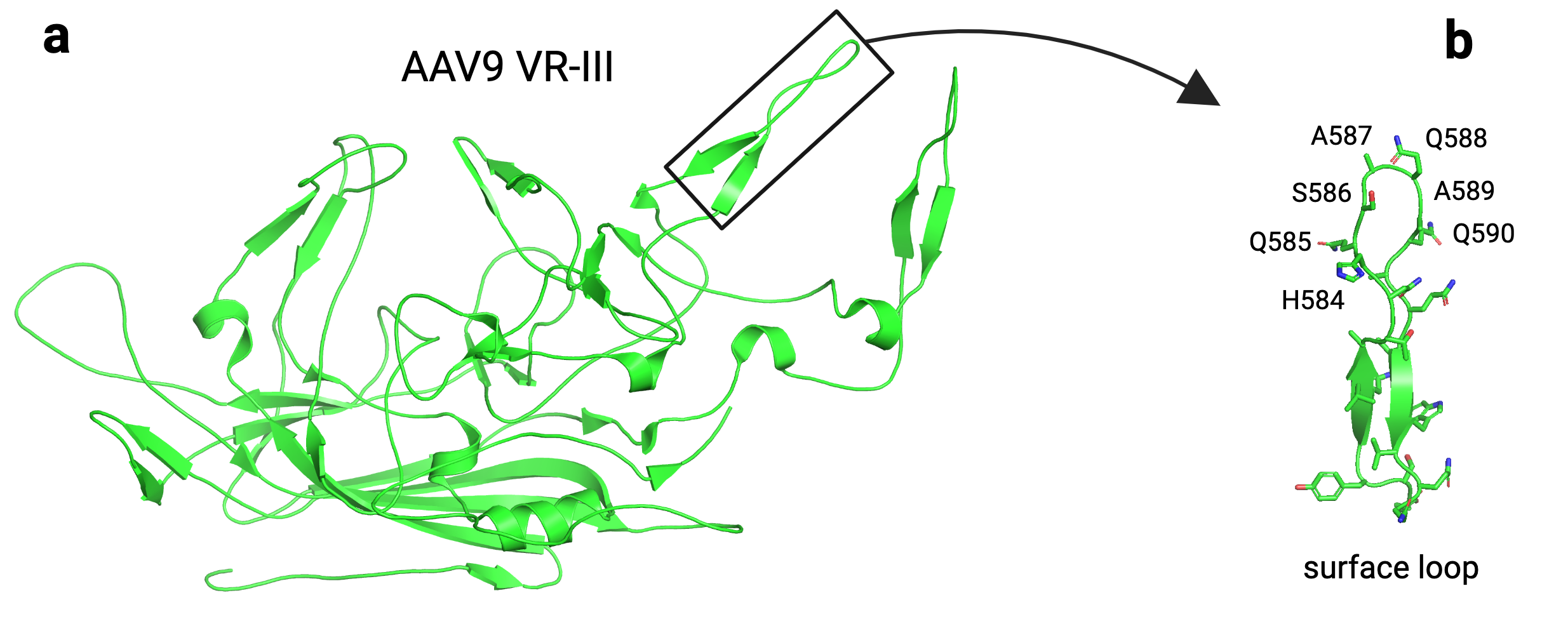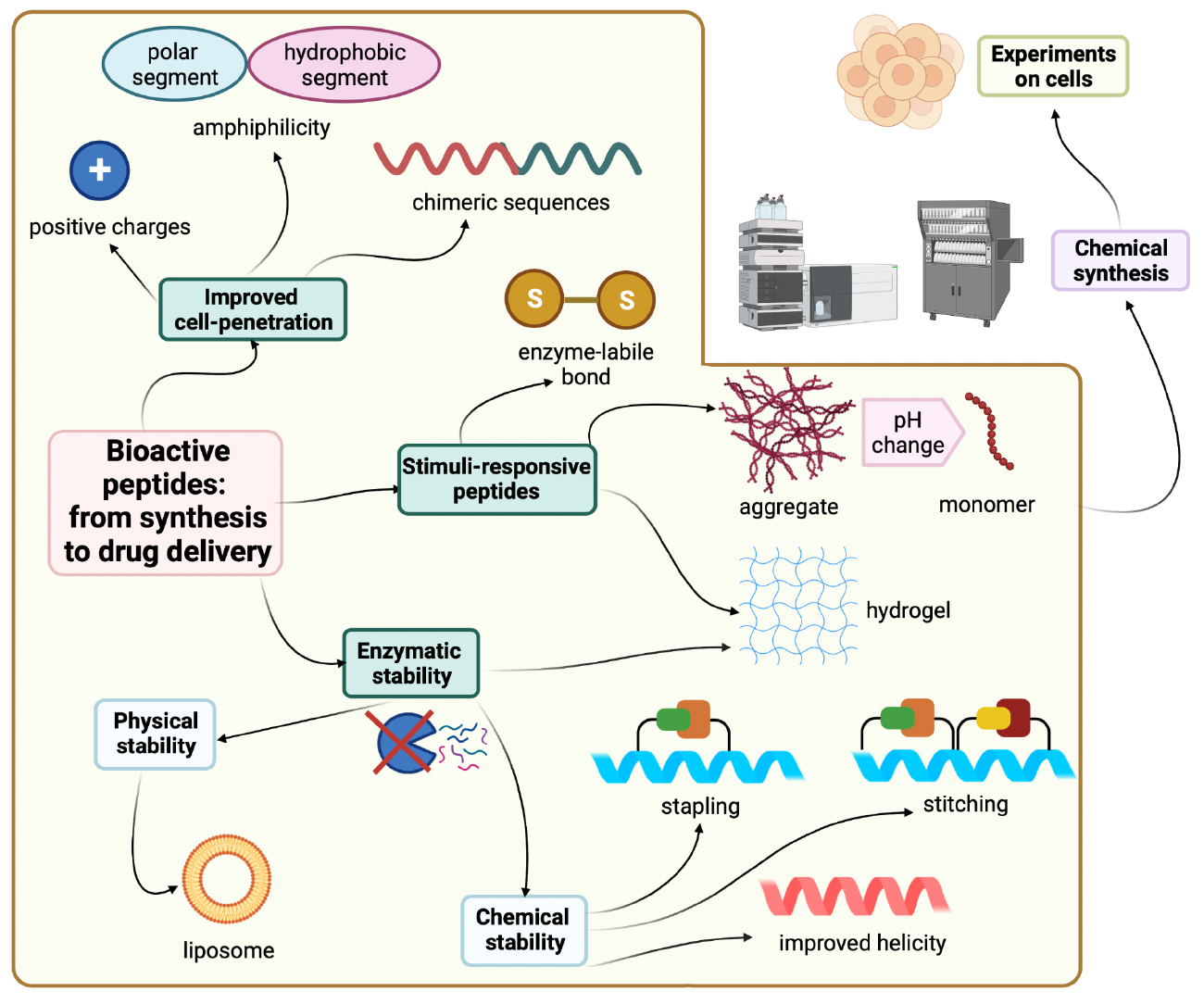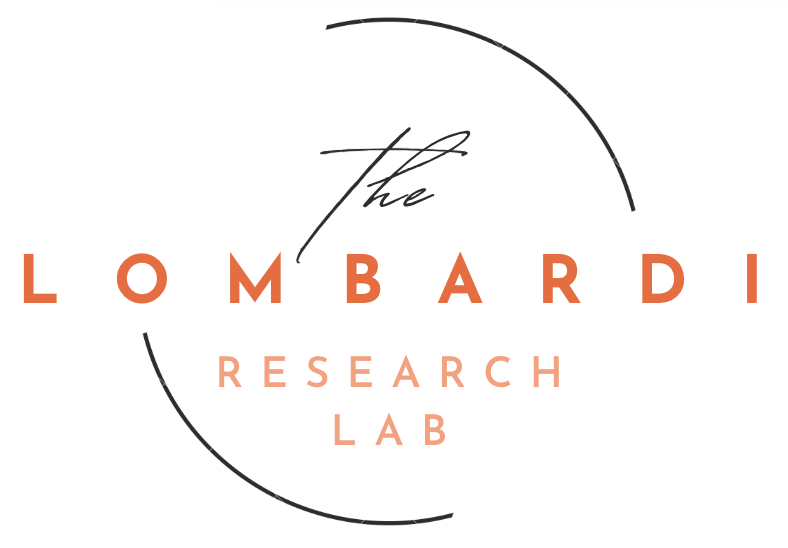Research Overview
Our research centers on advancing peptide therapeutics, cutting-edge biomaterials, and bioinspired solutions to tackle healthcare challenges, including drug delivery, disease treatment, antimicrobial resistance, and metabolic diagnostics. By leveraging a multidisciplinary approach that bridges chemistry, biology, and bioengineering, we strive to develop versatile, scalable, and efficient tools that enhance therapeutic accessibility and effectiveness. Our ultimate goal is to deliver impactful solutions to complex biomedical challenges, driving progress in addressing urgent global health concerns.
Video produced by Erin Spence, Digital Support Officer at the School of Biological Sciences, Queen’s University Belfast.
Research Focus Areas
High-throughput technology for screening peptide-based drugs
 In collaboration with Lilly, the objective is to accelerate the development of peptide-based drugs for oral administration and makes peptide therapeutics, such as GLP-1 agonists for diabetes treatment, broadly accessible. We created a chromatographic column mimicking cell membranes, providing pharmaceutical researchers with a cost-effective, high-throughput tool for studying drug interactions with biological membranes. This innovation complements existing cell models like PAMPA assays, offering a faster and more ethical approach to predicting absorption profiles. With the growing focus on pharmaceuticals, particularly peptide and protein therapeutics for oral administration, there is a strong demand for advanced analytical tools like this. This technology, expected to be patented in 2025.
In collaboration with Lilly, the objective is to accelerate the development of peptide-based drugs for oral administration and makes peptide therapeutics, such as GLP-1 agonists for diabetes treatment, broadly accessible. We created a chromatographic column mimicking cell membranes, providing pharmaceutical researchers with a cost-effective, high-throughput tool for studying drug interactions with biological membranes. This innovation complements existing cell models like PAMPA assays, offering a faster and more ethical approach to predicting absorption profiles. With the growing focus on pharmaceuticals, particularly peptide and protein therapeutics for oral administration, there is a strong demand for advanced analytical tools like this. This technology, expected to be patented in 2025.
Peptide engineered to mimic proteins for vaccine development
 In collaboration with Prof Robin Shattock at Imperial, we am working on protein-protein interactions (PPIs), pivotal in regulating cellular functions and promising therapeutic targets. Despite their potential, developing PPI inhibitors poses significant challenges due to their large and shallow interfaces that complicate ligand binding. Our study focuses on utilising synthetic peptide loops for replicating critical binding protein regions. This current work explores turn-inducing elements in promoting favourable conformations for yielding high-purity cyclic peptides on solid phase. Notably, our one-pot method offers enhanced versatility and represents a robust strategy for efficient and selective macrolactamisation, expanding the scope of peptide synthesis methodologies. This approach, validated through the synthesis of AAV capsid-derived loops, offers a robust platform for developing peptide-aided vaccine platform.
In collaboration with Prof Robin Shattock at Imperial, we am working on protein-protein interactions (PPIs), pivotal in regulating cellular functions and promising therapeutic targets. Despite their potential, developing PPI inhibitors poses significant challenges due to their large and shallow interfaces that complicate ligand binding. Our study focuses on utilising synthetic peptide loops for replicating critical binding protein regions. This current work explores turn-inducing elements in promoting favourable conformations for yielding high-purity cyclic peptides on solid phase. Notably, our one-pot method offers enhanced versatility and represents a robust strategy for efficient and selective macrolactamisation, expanding the scope of peptide synthesis methodologies. This approach, validated through the synthesis of AAV capsid-derived loops, offers a robust platform for developing peptide-aided vaccine platform.
Peptide-based biomaterials addressing antimicrobial resistance
In response to the global challenge of antibiotic resistance, we undertook a project aimed at exploring alternative antimicrobial agents surpassing conventional antibiotics. This research allows me to identify and characterise promising peptide sequences for combating resistant microbial biofilms. Moreover, we successfully developed a biomaterial based on self-assembling peptides, providing a platform to finely tune the antimicrobial activity of the identified agents.
Development of shuttles to cross the brain-blood barrier
 Inspired by the mechanisms employed by viruses to overcome cellular barriers during infection, we identify cell-penetrating peptides that exhibit promising abilities in traversing the blood-brain barrier. The identified peptide has proven highly effective in transporting diverse cargoes across the blood-brain barrier, positioning it as a viable candidate for the treatment of neurological diseases.
Inspired by the mechanisms employed by viruses to overcome cellular barriers during infection, we identify cell-penetrating peptides that exhibit promising abilities in traversing the blood-brain barrier. The identified peptide has proven highly effective in transporting diverse cargoes across the blood-brain barrier, positioning it as a viable candidate for the treatment of neurological diseases.

